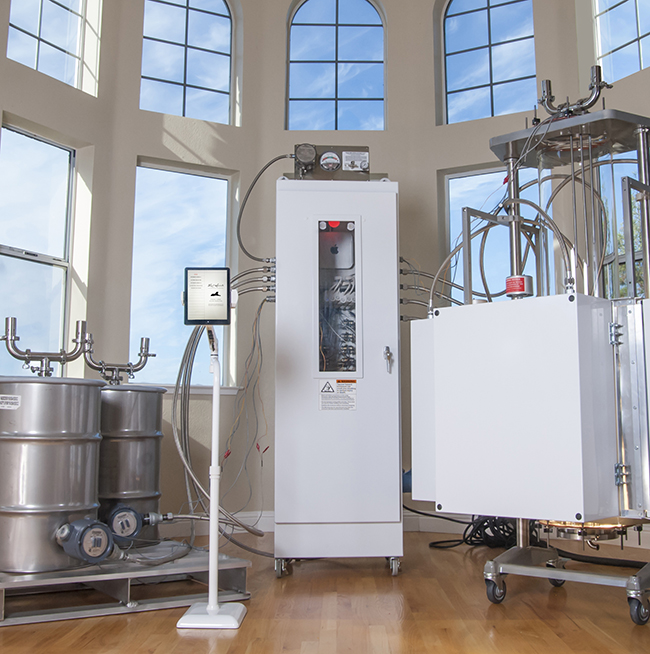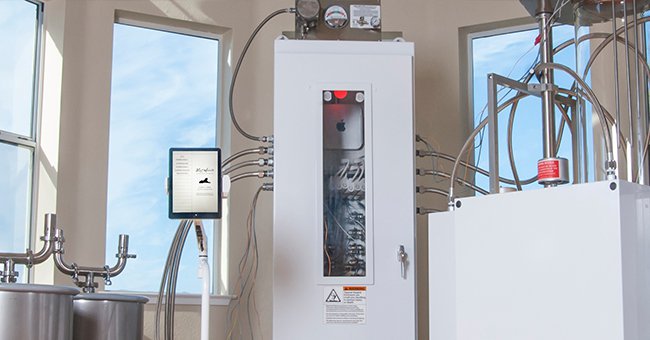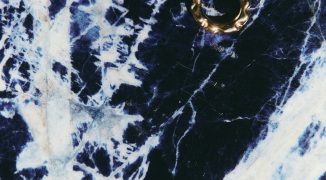Back in April, Monterey, Calif. distillery Lost Spirits announced they’d hacked the spirit aging process. Want the taste, aroma, and character of a 20-year-old rum? Founder Bryan Davis created a chemical reactor (with an accompanying white paper) that can make a fresh, “old” bottle for you in only six days.
Davis explains that the key was to figure out “a long daisy chain of things that had to be sequentially timed.”
By phone from the lab in Silicon Valley, Davis says that’s what has kept others from reaching their own eureka moment. The answer was not to intensify the amount of wood used. Rather, Davis and his team reverse engineered a traditionally aged bottle, identified the multiple chemical actions that take place over a two-decade term, and built a machine that could make those actions happen at the correct intervals.
“It’s a long, complicated set of pieces of chemistry,” Davis says. One he and his team have been researching for several years.
Unlike some innovations that spawn from leisurely “what if?” scenarios, Davis says that the need to speed up the complex characteristics of brown liquor was do-or-die. “It was a necessity for our [company’s] survival.”
 The Lost Spirits team has worked hard to make a more affordable, efficient means of aging spirits.
The Lost Spirits team has worked hard to make a more affordable, efficient means of aging spirits.
Engineering a revolution
The THEA One, as the chemical reactor is now called (previously, Model 1), can work with rum, whiskey, brandy, and agave spirits. Compared to the original DIY version, this one has more expensive materials and runs off of an iPad interface. Even with its success, the age-o-meter is limited — they’re currently locked in at 20 years old, no older and no younger. With real-life barrels, Davis says, a distiller can pop the top whenever he or she wants, halting the chemical dance that happens inside. Not so with THEA One — not yet anyway. Right now, Davis is perfecting the technology and seeing how his invention can be applicable in other parts of the industry.
The news of Lost Spirits’ find excited both the tech and spirits worlds so much, that Davis says they’ve evolved into a full blown tech company. Outside of testing, spirit production has been reduced to about once or twice a year for special runs.
“At this point, the business is all engineering and venture capital,” Davis says. They’re chasing a patent, working to comply with the regulations in various states and counties, and are signing up interested parties — for a fee.
The THEA One can only be procured upon payment of a $5,000 reservation fee, a set-up fee of $31,000, along with monthly lease payments of $4,000 a month. But even that price tag could tempt many insiders who look down the road of spirits aging and see a risky business with high losses (evaporation rates can be high).
On the subject of quality, reviews have been positive, citing woodsy aromas, a dried fruit noise, and smoky finish. And for the geeks that read Davis’ white paper, the chemical composition of Davis’ six-day-old rum was remarkably close to a 33-year-old sample, and “indicated an approximate age of 20 years,” according to the document.
Davis hopes that if executed on a wide enough scale, his technology could be a boon for up-and-coming distillers who could save start-up costs. And for the end user — the bar account or retail customer — this “21st-century barrel” system also has potentially huge cost savings. A bottle of 20-year-old rum can easily retail at $100 (at the low end) and a 20 year old Rye whiskey would cost $800-$2,000. Davis says THEA One-aged bottles should retail for about $30-$40.
Davis says he has research agreements with most of the major alcohol companies, and requested units from about 10 percent of the craft distillery industry. That’s potentially half of the aged spirits out there, he says. A saturated market of lab-aged spirits? Things may never get that far. But it’s mind boggling to think of what could happen if they do.
 With the success of the THEA One, Lost Spirits has grown into a full-blown tech company.
With the success of the THEA One, Lost Spirits has grown into a full-blown tech company.





